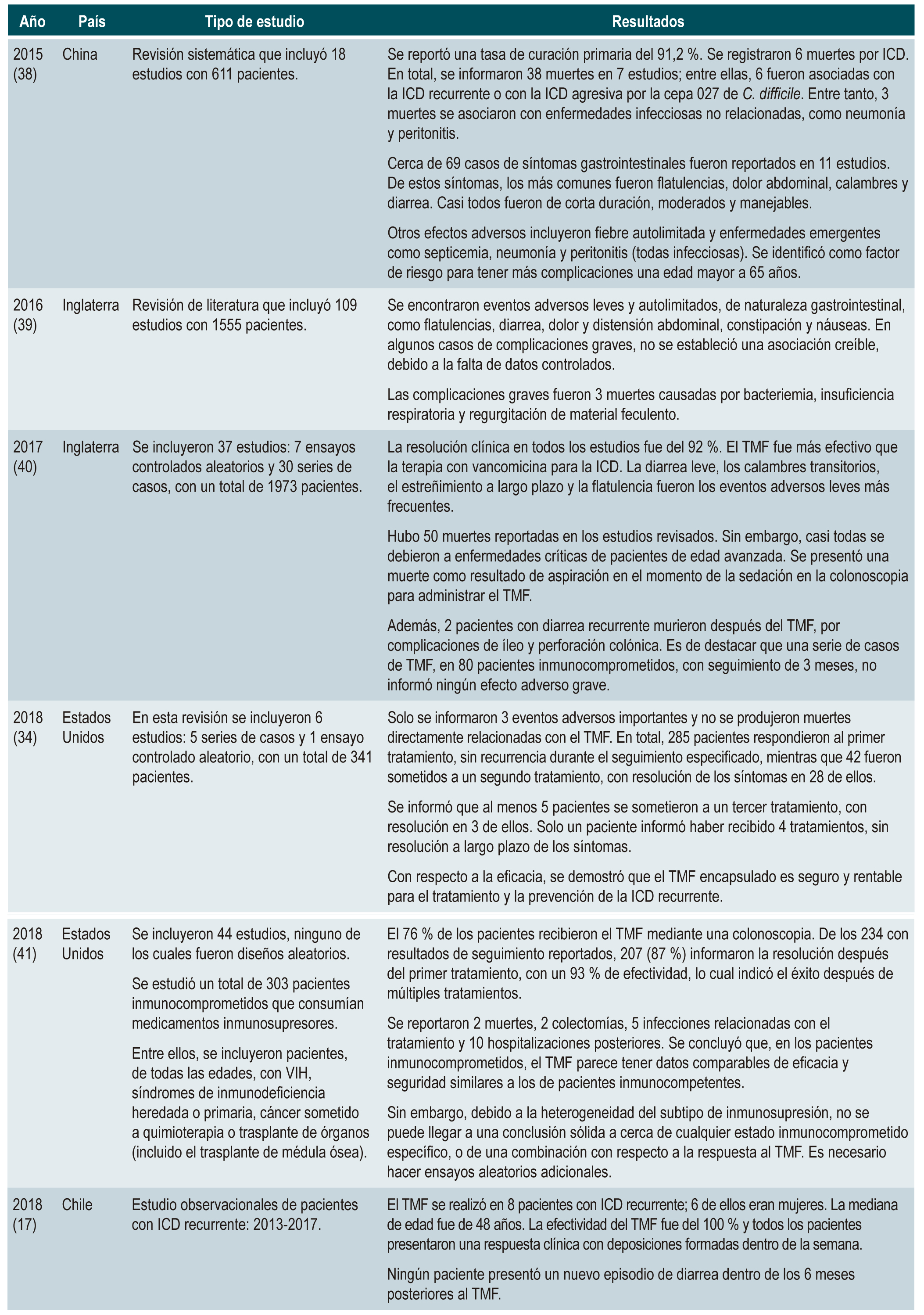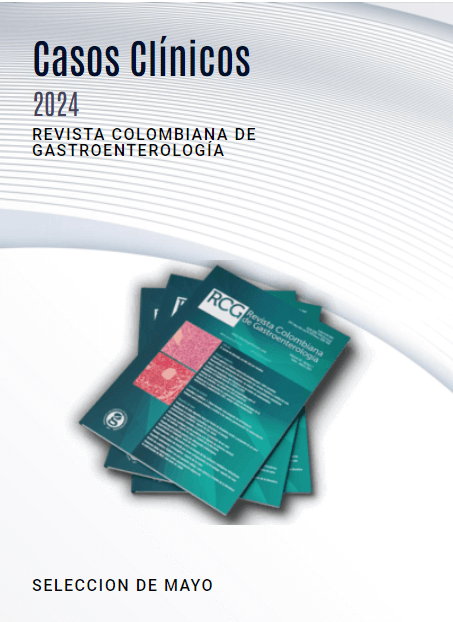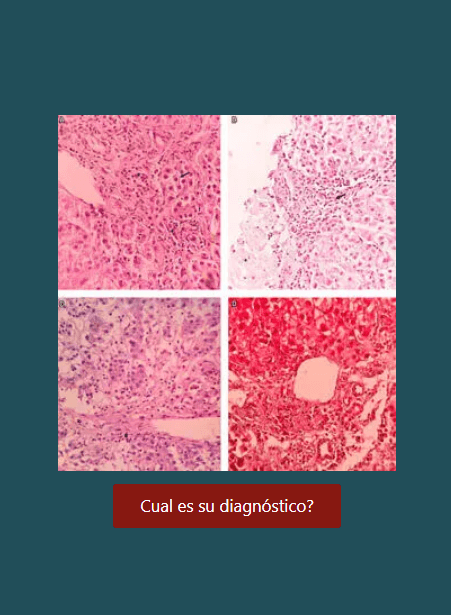Trasplante de microbiota fecal: una revisión
DOI:
https://doi.org/10.22516/25007440.486Palabras clave:
disbiosis, microbiota fecal, trasplante de microbiota fecal, infección, Clostridium difficile, bacterioterapiaResumen
La microbiota intestinal sana se define a partir de la presencia de grupos de microorganismos que potencian el metabolismo del huésped. Estos microorganismos le confieren resistencia ante las infecciones, así como ante procesos inflamatorios y frente al desarrollo de neoplasias o autoinmunidad. Además, favorecen las funciones endocrinas y colaboran con la función neurológica a través del eje intestino-cerebro. Por otro lado, el trasplante de microbiota fecal consiste en la introducción de una suspensión de materia fecal de un donante sano en el tracto gastrointestinal de otra persona, que generalmente es un paciente que presenta una patología concreta. Esto se realiza con el fin de manipular la composición de la microbiota del destinatario y contribuir al tratamiento de su problema. El concepto de trasplante de microbiota fecal rompe con la consideración tradicional de las bacterias como elementos dañinos y presta atención a las que, probablemente, son las más subvaloradas de las excretas del cuerpo humano: las heces. En efecto, se ha evidenciado su alta eficacia y el procedimiento es reconocido por el número de pacientes a los que ha ayudado, que se puede ya cifrar en miles. El objetivo de esta revisión de literatura fue describir aspectos básicos para comprender el trasplante de microbiota fecal enfocado al tratamiento de infecciones producidas por Clostridioides difficile.
Descargas
Referencias bibliográficas
Stedman A, Nigro G, Sansonetti PJ. Le dialogue microbiote-cellules souches: un élément clé pour la régénération intestinale. Med Sci. 2016;32(11):983-990.
https://doi.org/10.1051/medsci/20163211014
Rodríguez de Santiago E, García A, Ferre C, Aguilera L, López A. Trasplante de microbiota fecal: indicaciones, metodología y perspectivas futuras. Rev Argent Coloproct. 2015;26(4):225-234.
Allegretti JR, Mullish BH, Kelly C, Fischer M. The evolution of the use of faecal microbiota transplantation and emerging therapeutic indications. Lancet. 2019;394(10196):420-431.
http://doi.org/10.1016/S0140-6736(19)31266-8
Tavoukjian V. Faecal microbiota transplantation for the decolonization of antibiotic-resistant bacteria in the gut: a systematic review and meta-analysis. J Hosp Infect. 2019;102(2):174-188.
http://doi.org/10.1016/j.jhin.2019.03.010
Leszczyszyn JJ, Radomski M, Leszczyszyn AM. Intestinal microbiota transplant - current state of knowledge. Reumatologia. 2016;54(1):24-28.
http://doi.org/10.5114/reum.2016.58758
Human Microbiome Project Consortium. Structure, function and diversity of the healthy human microbiome. Nature. 2012;486(7402):207-214.
http://doi.org/10.1038/nature11234
Moore-Connors JM, Dunn KA, Bielawski JP, Van Limbergen J. Novel Strategies for Applied Metagenomics. Inflamm Bowel Dis. 2016;22(3):709-718.
http://doi.org/10.1097/MIB.0000000000000717
Ho J, Nicolucci AC, Virtanen H, Schick A, Meddings J, Reimer RA, Huang C. Effect of Prebiotic on Microbiota, Intestinal Permeability, and Glycemic Control in Children With Type 1 Diabetes. J Clin Endocrinol Metab. 2019;104(10):4427-4440.
http://doi.org/10.1210/jc.2019-00481
de Goffau MC, Luopajärvi K, Knip M, Ilonen J, Ruohtula T, Härkönen T, Orivuori L, Hakala S, Welling GW, Harmsen HJ, Vaarala O. Fecal microbiota composition differs between children with β-cell autoimmunity and those without. Diabetes. 2013;62(4):1238-44.
http://doi.org/10.2337/db12-0526
Silva F, Gatica T, Pavez C. Etiología y fisiopatología de la enfermedad inflamatoria intestinal. Rev Med Clínica Las Condes. 2019;30(4):262-272.
https://doi.org/10.1016/j.rmclc.2019.06.004
Icaza-Chávez ME. Microbiota intestinal en la salud y la enfermedad. Rev Gastroenterol Mex. 2013;78(4):240-248. http://doi.org/10.1016/j.rgmx.2013.04.004
Borody TJ, Paramsothy S, Agrawal G. Fecal microbiota transplantation: indications, methods, evidence, and future directions. Curr Gastroenterol Rep. 2013;15(8):337. http://doi.org/10.1007/s11894-013-0337-1
Lin TC, Hung YP, Ko WC, Ruan JW. Fecal microbiota transplantation for Clostridium difficile infection in Taiwan: Establishment and implementation. J Microbiol Immunol Infect. 2019;52(6):841-850.
http://doi.org/10.1016/j.jmii.2019.08.009
Huebner ES, Surawicz CM. Treatment of Recurrent Clostridium difficile Diarrhea. Gastroenterol Hepatol (N Y). 2006;2(3):203-208.
Sabah S. diarrea asociada a antibióticos. Rev Med Clínica Las Condes. 2015;26(5):687-695.
https://doi.org/10.1016/j.rmclc.2015.09.011
Leffler DA, Lamont JT. Clostridium difficile infection. N Engl J Med. 2015;372(16):1539-1548.
http://doi.org/10.1056/NEJMra1403772
López-Sanromán A, Rodríguez de Santiago E, Cobo Reinoso J, Del Campo Moreno R, Foruny Olcina JR, García Fernández S, García García de Paredes A, Aguilera Castro L, Ferre Aracil C, Albillos Martínez A. Results of the implementation of a multidisciplinary programme of faecal microbiota transplantation by colonoscopy for the treatment of recurrent Clostridium difficile infection. Gastroenterol Hepatol. 2017;40(9):605-614.
http://doi.org/10.1016/j.gastrohep.2017.03.004
Cohen SH, Gerding DN, Johnson S, Kelly CP, Loo VG, McDonald LC, Pepin J, Wilcox MH; Society for Healthcare Epidemiology of America; Infectious Diseases Society of America. Clinical practice guidelines for Clostridium difficile infection in adults: 2010 update by the society for healthcare epidemiology of America (SHEA) and the infectious diseases society of America (IDSA). Infect Control Hosp Epidemiol. 2010;31(5):431-55.
Doré J, Simrén M, Buttle L, Guarner F. Hot topics in gut microbiota. United European Gastroenterol J. 2013;1(5):311-318.
http://doi.org/10.1177/2050640613502477
Vindigni SM, Surawicz CM. Fecal Microbiota Transplantation. Gastroenterol Clin North Am. 2017;46(1):171-185.
http://doi.org/10.1016/j.gtc.2016.09.012
Zamudio-Tiburcio Á, Bermúdez-Ruiz H, Lezama-Guzmán HR, Guevara-Ortigoza MDP, Islas-Solares E, Sosa-López FA. Breaking paradigms. Intestinal microbiota transplantation: Preliminar report. Cir Cir. 2017;85 Suppl 1:6-12. http://doi.org/10.1016/j.circir.2016.11.017
García A, Rodríguez de Santiago E, Aguilera L, Ferre C, López-Sanromán A. Trasplante de microbiota fecal. 2015;38(3):123-134.
https://doi.org/10.1016/j.gastrohep.2014.07.010
Quera R, Ibáñez P, Simian D, Rivera D, Acuña G, Espinoza R. Fecal microbiota transplantation through colonoscopy for Clostridium difficile recurrent infection. Report of eight cases. Rev Med Chil. 2018;146(8):823-830.
http://doi.org/10.4067/s0034-98872018000800823
Smith MB, Kelly C, Alm EJ. Policy: How to regulate faecal transplants. Nature. 2014;506(7488):290-291.
http://doi.org/10.1038/506290a
Jørgensen SMD, Hvas CL, Dahlerup JF, Mikkelsen S, Ehlers L, Hammeken LH, Licht TR, Bahl MI, Erikstrup C. Banking feces: a new frontier for public blood banks? Transfusion. 2019;59(9):2776-2782.
http://doi.org/10.1111/trf.15422
Verbeke F, Janssens Y, Wynendaele E, De Spiegeleer B. Faecal microbiota transplantation: a regulatory hurdle?. BMC Gastroenterol. 2017;17(1):128.
http://doi.org/10.1186/s12876-017-0687-5
Cammarota G, Ianiro G, Tilg H, Rajilić-Stojanović M, Kump P, Satokari R, Sokol H, Arkkila P, Pintus C, Hart A, Segal J, Aloi M, Masucci L, Molinaro A, Scaldaferri F, Gasbarrini G, Lopez-Sanroman A, Link A, de Groot P, de Vos WM, Högenauer C, Malfertheiner P, Mattila E, Milosavljević T, Nieuwdorp M, Sanguinetti M, Simren M, Gasbarrini A; European FMT Working Group. European consensus conference on faecal microbiota transplantation in clinical practice. Gut. 2017;66(4):569-580.
http://doi.org/10.1136/gutjnl-2016-313017
Ooijevaar RE, Terveer EM, Verspaget HW, Kuijper EJ, Keller JJ. Clinical Application and Potential of Fecal Microbiota Transplantation. Annu Rev Med. 2019;70:335-351.
http://doi.org/10.1146/annurev-med-111717-122956
Terveer EM, van Beurden YH, Goorhuis A, Seegers JFML, Bauer MP, van Nood E, Dijkgraaf MGW, Mulder CJJ, Vandenbroucke-Grauls CMJE, Verspaget HW, Keller JJ, Kuijper EJ. How to: Establish and run a stool bank. Clin Microbiol Infect. 2017;23(12):924-930.
http://doi.org/10.1016/j.cmi.2017.05.015
Costello SP, Conlon MA, Vuaran MS, Roberts-Thomson IC, Andrews JM. Faecal microbiota transplant for recurrent Clostridium difficile infection using long-term frozen stool is effective: clinical efficacy and bacterial viability data. Aliment Pharmacol Ther. 2015;42(8):1011-1018.
http://doi.org/10.1111/apt.13366
Castañeda C. Trasplante de microbiota fecal. Rev Cubana Pediatr. 2019;91(3):e829.
Núñez ME, Cebada M, Contreras B. Trasplante de microbiota fecal: protocolo de estandarización para la selección de donadores. An Med (Mex). 2017;62(2):114-119.
Shi YC, Yang YS. Fecal microbiota transplantation: Current status and challenges in China. JGH Open. 2018;2(4):114-116.
http://doi.org/10.1002/jgh3.12071
Iqbal U, Anwar H, Karim MA. Safety and efficacy of encapsulated fecal microbiota transplantation for recurrent Clostridium difficile infection: a systematic review. Eur J Gastroenterol Hepatol. 2018;30(7):730-734.
http://doi.org/10.1097/MEG.0000000000001147
Scaldaferri F, Pecere S, Petito V, Zambrano D, Fiore L, Lopetuso LR, Schiavoni E, Bruno G, Gerardi V, Laterza L, Pizzoferrato M, Ianiro G, Stojanovic J, Poscia A, Papa A, Paroni Sterbini F, Sanguinetti M, Masucci L, Cammarota G, Gasbarrini A. Efficacy and Mechanisms of Action of Fecal Microbiota Transplantation in Ulcerative Colitis: Pitfalls and Promises From a First Meta-Analysis. Transplant Proc. 2016;48(2):402-7.
http://doi.org/10.1016/j.transproceed.2015.12.040
Paknikar R, Pekow J. Fecal Microbiota Transplantation for the Management of Clostridium difficile Infection. Surg Infect (Larchmt). 2018;19(8):785-791.
http://doi.org/10.1089/sur.2018.221
Wang S, Xu M, Wang W, Cao X, Piao M, Khan S, Yan F, Cao H, Wang B. Systematic Review: Adverse Events of Fecal Microbiota Transplantation. PLoS One. 2016;11(8):e0161174.
http://doi.org/10.1371/journal.pone.0161174
Li YT, Cai HF, Wang ZH, Xu J, Fang JY. Systematic review with meta-analysis: long-term outcomes of faecal microbiota transplantation for Clostridium difficile infection. Aliment Pharmacol Ther. 2016;43(4):445-457.
http://doi.org/10.1111/apt.13492
Baxter M, Colville A. Adverse events in faecal microbiota transplant: a review of the literature. J Hosp Infect. 2016;92(2):117-127.
http://doi.org/10.1016/j.jhin.2015.10.024
Quraishi MN, Widlak M, Bhala N, Moore D, Price M, Sharma N, Iqbal TH. Systematic review with meta-analysis: the efficacy of faecal microbiota transplantation for the treatment of recurrent and refractory Clostridium difficile infection. Aliment Pharmacol Ther. 2017;46(5):479-493. http://doi.org/10.1111/apt.14201
Shogbesan O, Poudel DR, Victor S, Jehangir A, Fadahunsi O, Shogbesan G, Donato A. A Systematic Review of the Efficacy and Safety of Fecal Microbiota Transplant for Clostridium difficile Infection in Immunocompromised Patients. Can J Gastroenterol Hepatol. 2018;2018:1394379.
http://doi.org/10.1155/2018/1394379
Sha S, Liang J, Chen M, Xu B, Liang C, Wei N, Wu K. Systematic review: faecal microbiota transplantation therapy for digestive and nondigestive disorders in adults and children. Aliment Pharmacol Ther. 2014;39(10):1003-32. http://doi.org/10.1111/apt.12699
Gundling F, Roggenbrod S, Schleifer S, Sohn M, Schepp W. Patient perception and approval of faecal microbiota transplantation (FMT) as an alternative treatment option for obesity. Obes Sci Pract. 2018;5(1):68-74.
http://doi.org/10.1002/osp4.302
Sampson TR, Debelius JW, Thron T, Janssen S, Shastri GG, Ilhan ZE, Challis C, Schretter CE, Rocha S, Gradinaru V, Chesselet MF, Keshavarzian A, Shannon KM, Krajmalnik-Brown R, Wittung-Stafshede P, Knight R, Mazmanian SK. Gut Microbiota Regulate Motor Deficits and Neuroinflammation in a Model of Parkinson’s Disease. Cell. 2016;167(6):1469-1480.e12.
http://doi.org/10.1016/j.cell.2016.11.018
Castañeda CD. Microbiota intestinal, probióticos y prebióticos. Enferm Inv (Ambato). 2017;2(4):156-160.
https://doi.org/10.29033/ei.v2n4.2017.07
Kang DW, Adams JB, Gregory AC, Borody T, Chittick L, Fasano A, Khoruts A, Geis E, Maldonado J, McDonough-Means S, Pollard EL, Roux S, Sadowsky MJ, Lipson KS, Sullivan MB, Caporaso JG, Krajmalnik-Brown R. Microbiota Transfer Therapy alters gut ecosystem and improves gastrointestinal and autism symptoms: an open-label study. Microbiome. 2017;5(1):10.
http://doi.org/10.1186/s40168-016-0225-7
D’Haens GR, Jobin C. Fecal Microbial Transplantation for Diseases Beyond Recurrent Clostridium Difficile Infection. Gastroenterology. 2019;157(3):624-636.

Descargas
Publicado
Cómo citar
Número
Sección
Licencia
Aquellos autores/as que tengan publicaciones con esta revista, aceptan los términos siguientes:
Los autores/as ceden sus derechos de autor y garantizarán a la revista el derecho de primera publicación de su obra, el cuál estará simultáneamente sujeto a la Licencia de reconocimiento de Creative Commons que permite a terceros compartir la obra siempre que se indique su autor y su primera publicación en esta revista.
Los contenidos están protegidos bajo una licencia de Creative Commons Reconocimiento-NoComercial-SinObraDerivada 4.0 Internacional.


| Estadísticas de artículo | |
|---|---|
| Vistas de resúmenes | |
| Vistas de PDF | |
| Descargas de PDF | |
| Vistas de HTML | |
| Otras vistas | |















